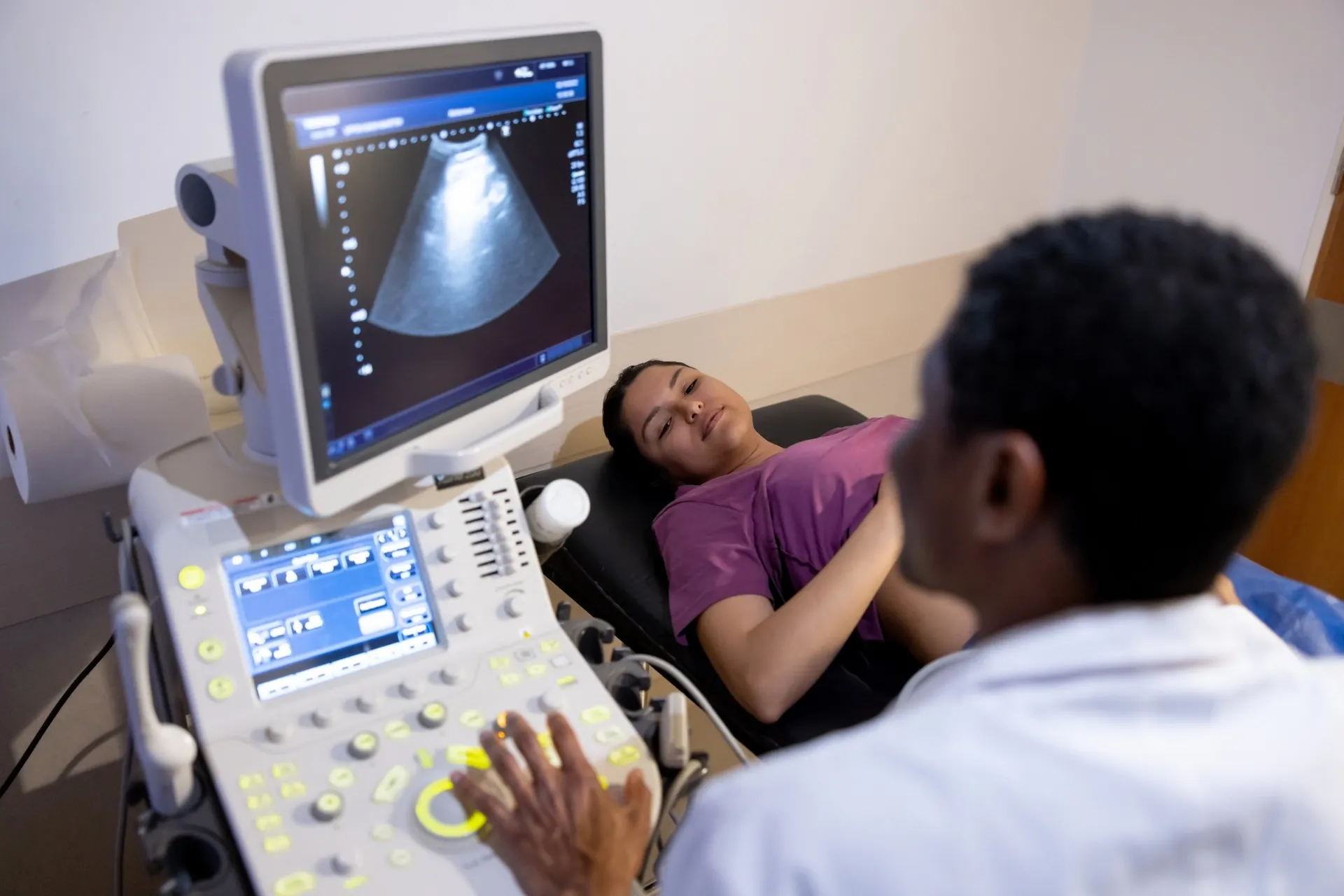Kaiser Permanente identifies pregnant patients whose babies may have a heart problem at a similar rate to other health systems who perform more tests, according to a new study by Kaiser Permanente researchers. This means Kaiser Permanente members receive care that save them time while also avoiding the potential anxiety that may accompany an additional prenatal test.
“This study shines a light on one of the referral pathways our health care organization has developed that others can benefit from,” said study co-author Julie Schmittdiel, PhD, associate director of Health Care Delivery and Policy and a research scientist at the Kaiser Permanente Division of Research. “It’s another exciting instance when Kaiser Permanente in Northern California is leading the way in improving how care is provided.”

A heart problem that occurs while a baby is developing is called a congenital heart disease. To determine if a baby’s heart is developing properly, doctors use a fetal echocardiogram, a test that uses soundwaves to create a picture of the baby’s heart. When the problem is detected before birth, the baby can get treated sooner.
Kaiser Permanente in Northern California refers pregnant patients for an echocardiogram only when a standard ultrasound at 18 to 22 weeks of pregnancy suggests a potential problem. Many other health systems refer patients for a fetal echocardiogram based on various risk factors that the mother or baby have. Because they consider risk factors, systems outside Kaiser Permanente end up testing more.
“Outside of Kaiser in Northern California, referrals for fetal echocardiograms are at least 10-fold higher. But there is no evidence that doing so improves detection rates or outcomes,” said lead author Sanjay Vepa, MD, a pediatric cardiologist with Kaiser Permanente in Oakland. “Our study shows Kaiser Permanente in Northern California has the same results, without having as many pregnant patients have this test.”
Fewer tests, similar detection rate

The study, recently published in Prenatal Diagnosis, included 214,486 babies born at Kaiser Permanente hospitals in Northern California from January 2016 through December 2020. All the pregnant patients in the study had a screening ultrasound.
There were 1,300 patients who were referred for a fetal echocardiogram. Because of the test, there were 183 babies who had a heart problem detected before they were born. This translated to an overall prenatal detection rate of 62%, which is about the same rate as other health care systems.
“Our study shows the strength of our value-based care environment,” said Dr. Vepa. “We are a leader in this arena, and we are proud to provide patient-centered, integrated prenatal care.”





This Post Has 0 Comments